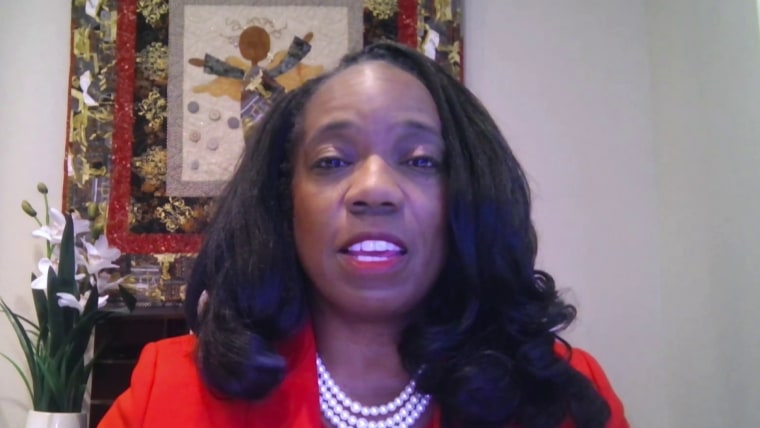Now that Donald Trump has been indicted four times, it might be tempting to lump the cases together as part of one big scandal, but that would paint a misleading picture. The former president’s case in Georgia, for example, is different in several meaningful ways.
From the racketeering charges to the number of alleged co-conspirators to the prospect of televised proceedings, the Fulton County indictment is a qualitatively different kind of case. But among the most striking details to keep in mind is what might happen to the former president if he’s ultimately convicted. As my MSNBC colleague Jordan Rubin explained this morning:
Donald Trump’s best legal defense is to win the presidency in 2024. That’s true for multiple reasons — whether it’s the prospect of a legally debatable self-pardon or the simpler fact that he’d control the government that’s prosecuting him.... But Trump’s Georgia indictment reminds us that presidents don’t have that awesome power over state cases.
Quite right. In the New York case, Trump might yet be convicted as part of his hush-money-to-a-porn-star scandal, but his punishment would likely be a financial penalty. In his federal criminal cases, the Republican is counting on a 2024 election victory, at which point he’d no doubt try to pardon himself, wiping the slate clean.
But if convicted of state crimes in Georgia, Trump, even if he were in the White House, couldn’t simply make the charges disappear — because he’d have no legal authority to do so.
Could Brian Kemp, Georgia’s Republican governor who’s been the target of Trump’s ire in recent years, come to the former president’s rescue? No, that’s not an option, either. As Jordan’s report went on to explain, “under the state constitution, there’s a board of pardons and paroles, with five members appointed by the governor and confirmed by the state Senate to staggered, seven-year terms.”
OK, so maybe the state’s pardon board could rescue Trump in the wake a possible criminal conviction? Unfortunately for the former president, it’s not nearly that simple: To be considered for a pardon in Georgia, someone must, among other things, (1) complete their sentence; (2) have no pending charges; and (3) wait five years.
Or put another way, if Trump is found guilty in Georgia, he won’t be able to simply turn to partisan allies for some kind of rescue. Such a solution doesn’t exist under state law.
At least, that is, under current state law.
A Republican named Mike Davis, whose background includes working for Sen. Chuck Grassley and Justice Neil Gorsuch, appeared on Fox News last night to pitch a provocative idea: Davis argued that the GOP-state legislature “needs to amend” Georgia law so that Kemp would have the authority to pardon Trump.
As of this morning, there’s no reason to believe such a move will happen, but it was striking rhetoric nevertheless: If the law might hold Trump accountable for his alleged crimes, there are apparently some who believe the law must be changed to prevent the former president from facing consequences.

